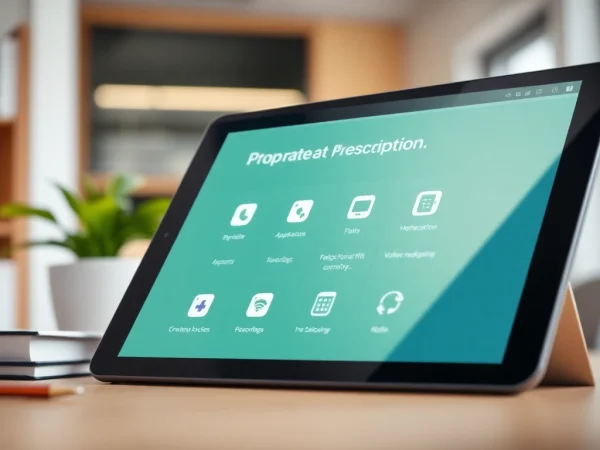Understanding Depression: Symptoms, Causes, and Effective Treatments
What is Depression?
Definition of Depression
Depression is classified as a mood disorder that significantly impacts an individual’s emotional state. It is characterized by an enduring feeling of sadness, hopelessness, and a lack of interest or enjoyment in activities that were once pleasurable. The condition is more than just fleeting feelings of melancholy; it encompasses a persistent condition that disrupts daily functioning and quality of life. According to the World Health Organization, over 280 million people worldwide suffer from depression, highlighting its prevalence as a global health concern.
Types of Depression
Understanding the different types of depression is crucial for proper identification and treatment. The most common types include:
- Major Depressive Disorder (MDD): Characterized by a persistent low mood and loss of interest that interferes with daily activities.
- Persistent Depressive Disorder (Dysthymia): A chronic form of depression lasting for at least two years, where episodes of MDD can occur.
- Bipolar Disorder: Involves episodes of depression alternate with periods of mania or hypomania.
- Seasonal Affective Disorder (SAD): Occurs at specific times of the year, often in the winter months when natural sunlight is less available.
- Postpartum Depression: Affects new mothers and can emerge after childbirth, causing severe mood swings, exhaustion, and irritability.
Common Symptoms of Depression
Identifying symptoms of depression is essential for early intervention. Common symptoms may include:
- Persistent feelings of sadness or emptiness
- Loss of interest in activities
- Changes in appetite or weight
- Disruption in sleep patterns
- Fatigue or loss of energy
- Feelings of worthlessness or excessive guilt
- Difficulties concentrating or making decisions
- Thoughts of death or suicide
The Causes of Depression
Biological Factors
Biological factors play a significant role in the development of depression. These can include genetic predisposition, hormonal changes, and alterations in brain chemistry. For instance, individuals with a family history of depression have a greater risk. Neurotransmitters, such as serotonin and norepinephrine, are often implicated in mood regulation, and imbalances in these chemicals may lead to depressive symptoms.
Environmental Influences
Environmental factors, including traumatic life events, chronic stress, and exposure to violence, can contribute significantly to the onset of depression. Situations such as job loss, relationship breakdown, or childhood neglect can lead to prolonged emotional distress, which may trigger depressive episodes.
Psycho-social Stressors
The psychological and social environment is crucial in influencing mental health. Economic challenges, social isolation, and lack of support systems can exacerbate feelings of hopelessness. Interpersonal relationships and community engagement are vital protective factors against depression; thus, their absence can contribute to an individual’s vulnerability to the disorder.
Diagnosing Depression
Diagnostic Criteria
To diagnose depression consistently, healthcare professionals refer to criteria outlined in recognized manuals such as the Diagnostic and Statistical Manual of Mental Disorders (DSM-5). Diagnosis typically involves a thorough assessment of the individual’s emotional state, patterns of behavior, and physical health, taking into account the duration and severity of symptoms.
Self-Assessment Tools
Self-assessment tools can help individuals gauge their mental health status. Surveys and questionnaires, like the Patient Health Questionnaire (PHQ-9), allow individuals to reflect on their symptoms and provide a basis for discussing their mental health with a professional.
Professional Evaluation Process
A comprehensive evaluation by a mental health professional is essential for an accurate diagnosis. This may involve a detailed interview, psychological testing, and possibly consultation with other healthcare providers. The objective is to rule out other medical conditions that may mimic depression and to develop an appropriate treatment plan.
Treatment Options for Depression
Psychological Therapies
Psychological therapies, or talk therapies, are critical components in treating depression. Cognitive Behavioral Therapy (CBT) is particularly effective, focusing on changing negative thought patterns and behaviors that contribute to depression. Other therapeutic methods include Interpersonal Therapy (IPT) and Dialectical Behavior Therapy (DBT), which address emotions and interpersonal challenges.
Medication and Pharmacological Treatments
In cases where therapy alone may not be effective, pharmacological treatments such as antidepressant medications can be prescribed. Common classes of antidepressants include selective serotonin reuptake inhibitors (SSRIs) and serotonin-norepinephrine reuptake inhibitors (SNRIs). It’s important to work closely with a healthcare provider to find the most suitable medication, considering potential side effects and interactions.
Lifestyle Changes and Self-Care Practices
Incorporating lifestyle changes can significantly impact recovery from depression. Regular physical activity, a balanced diet, and sufficient sleep are fundamental practices that support mental health. Mindfulness techniques, meditation, and connecting with supportive community members also play crucial roles in managing depression effectively.
Living with Depression
Managing Symptoms Daily
Living with depression often necessitates daily strategies for symptom management. Creating a structured routine can help individuals maintain a sense of normalcy and purpose. Setting small, achievable goals can combat feelings of helplessness, fostering a sense of accomplishment. Journaling, expressing emotions through writing, and engaging in hobbies provide additional outlets for emotional processing.
Building Support Systems
A strong support system is paramount for those battling depression. Maintaining connections with friends and family, seeking support groups, or joining community organizations can provide emotional backing. Openly discussing feelings with trusted individuals helps build understanding and compassion, reducing the sense of loneliness that often accompanies depression.
Resources for Ongoing Help
Accessing ongoing help is essential for managing depression effectively. Local mental health agencies, hotlines, and online support communities offer resources and professional help. For additional support, individuals can explore therapy apps and online counseling services, ensuring they can receive timely assistance whenever needed. For more information on depression, individuals can refer to reliable resources such as depression support websites that bring valuable insights and tools.










